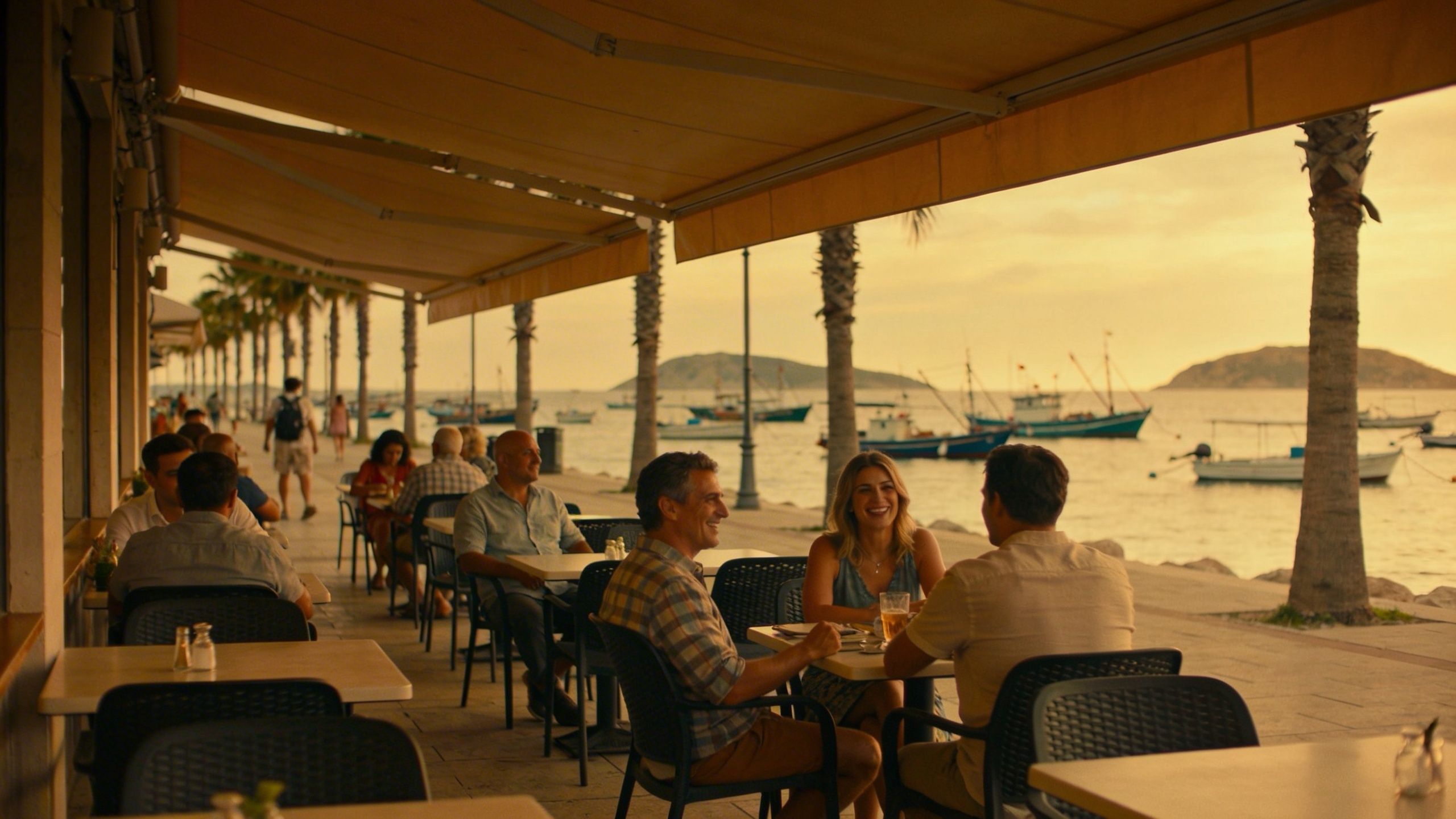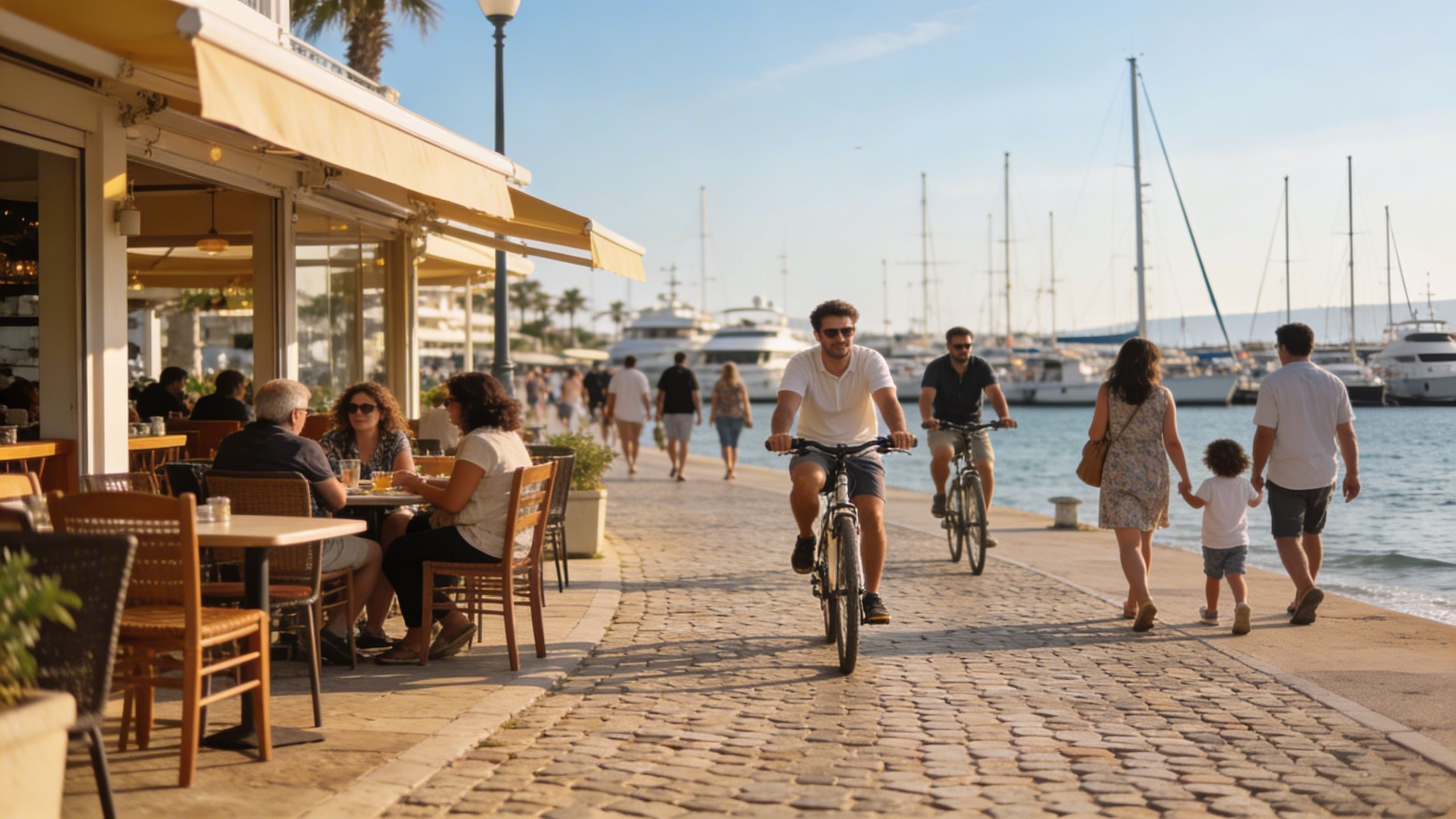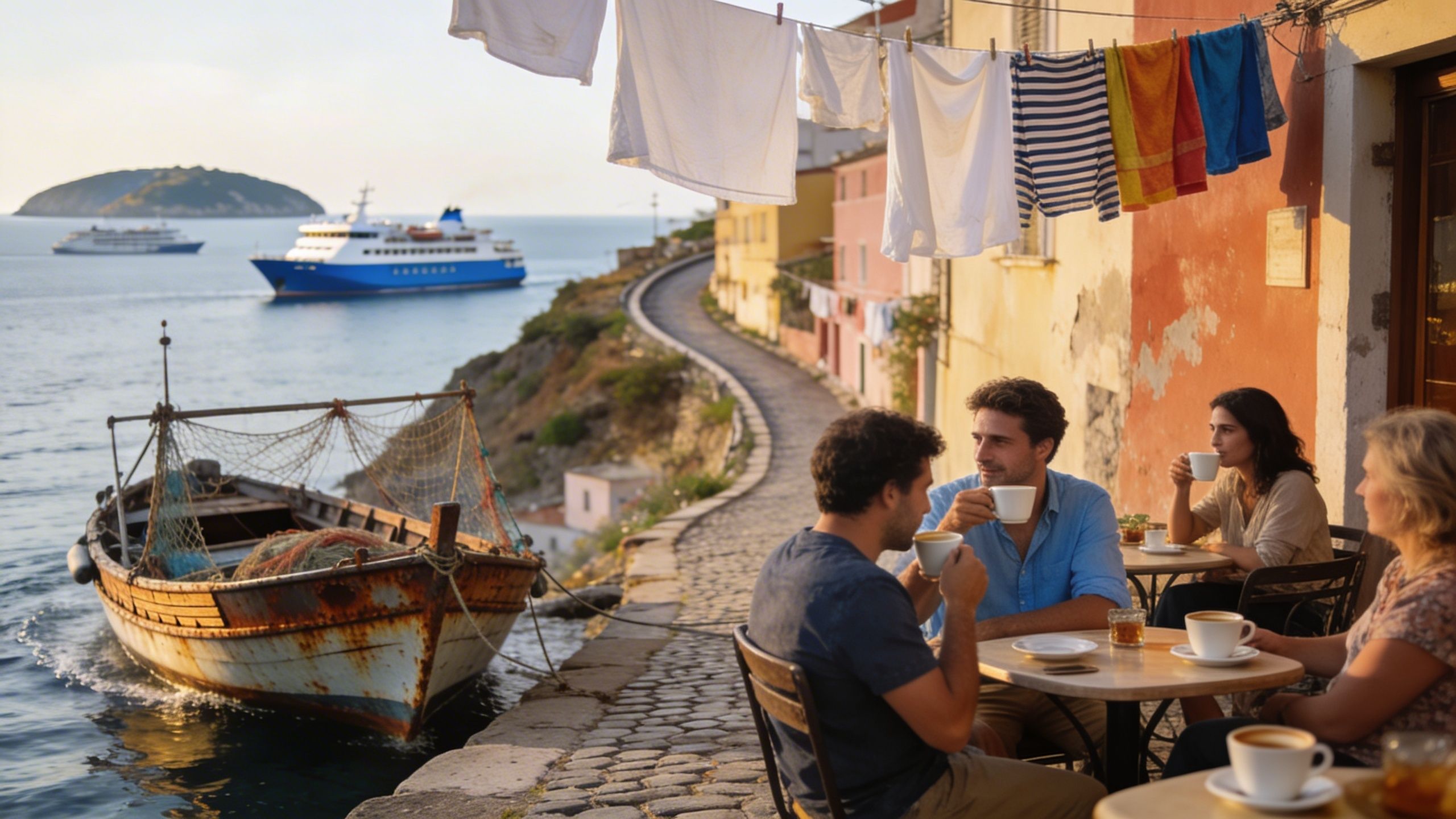France vs Costa Blanca: Lifestyle trade‑offs & market facts
Compare French Mediterranean life with Costa Blanca’s liquidity: lifestyle contrasts, market facts and practical steps to align daily living with buying realities.
Imagine sipping espresso at a sunlit café on a narrow street in Aix, then two weeks later swapping that walk for a long, quiet beach morning on the Costa Blanca. Both places offer Mediterranean light and coastal rhythms, but they deliver different daily textures, legal rules and liquidity for buyers. This piece compares living in France with investing in Spain’s Costa Blanca so you can match the life you want with the market realities that will shape price, resale and rental performance. We anchor observations to recent French market data and practical cross-border buying considerations.
Living the French Mediterranean Life
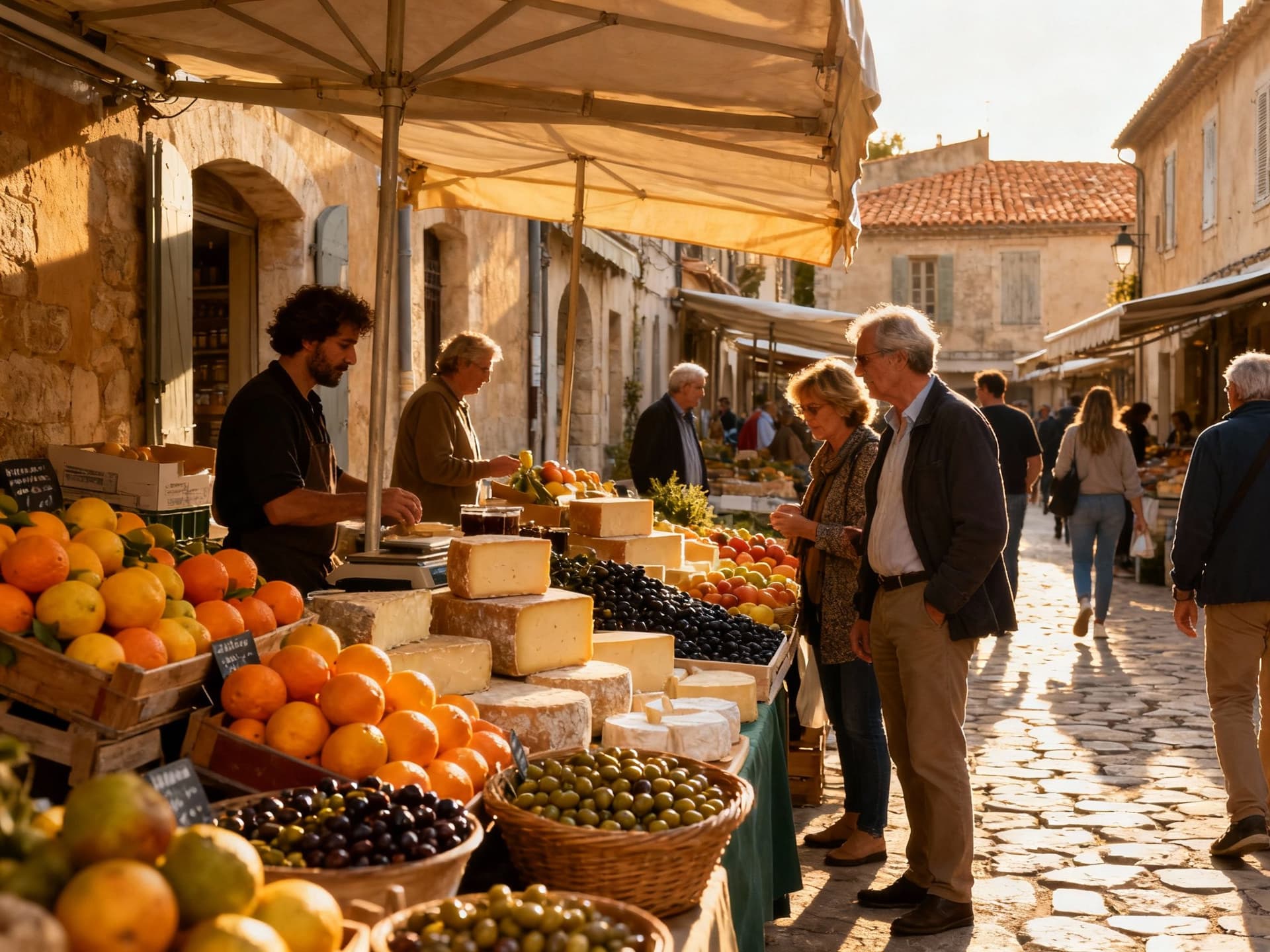
France’s Mediterranean coast — Nice, Cannes, Antibes and smaller towns like Cassis and Bandol — blends urban cultural life with seaside leisure. Days are punctuated by marché visits, café tables, and late walks along the promenade; evenings favour small bistros and local wine. The market mixes primary residences, well‑established second‑home demand and international buyers seeking lifestyle and capital stability, which historically supports price resilience even when transaction volumes dip. Recent notaire and INSEE data show modest price recovery in 2025, though gains are uneven by city and property type.
Neighborhood character: Côte d'Azur vs Provençal towns
On the Riviera, neighbourhoods vary from the manicured promenades of Nice’s Carré d’Or to the village quiet of Èze. Aix-en-Provence and the Luberon trade coastal immediacy for Provençal markets, vineyards and a slower pace. Parisians often hold second homes in these regions, which affects seasonality and short-term rental dynamics. Knowing which pocket suits you — lively seafront or tucked-away village — will influence property type, expected occupancy for rentals and community rhythm.
Food, markets and weekend rituals
Markets shape everyday life: morning stalls offer citrus, anchovies, local olive oil and small producers’ cheeses. Sundays are for long lunches at family-run bistros and coastal walks; festivals and farmers’ markets bookend the year. These rituals create a different living pattern from Spain’s Costa Blanca — more emphasis on regional produce and café culture in France — and buyers often choose properties with a small kitchen garden or walkable access to market squares.
- Lifestyle highlights in French coastal living
- Morning markets (e.g., Cours Saleya, Nice) and weekly Provençal marchés
- Access to regional rail and TGV for Paris and European connections
- Established international schools and healthcare infrastructure
- Cultural calendar: open‑air concerts, film festivals (Cannes), local fêtes
Making the Move: Practical Considerations
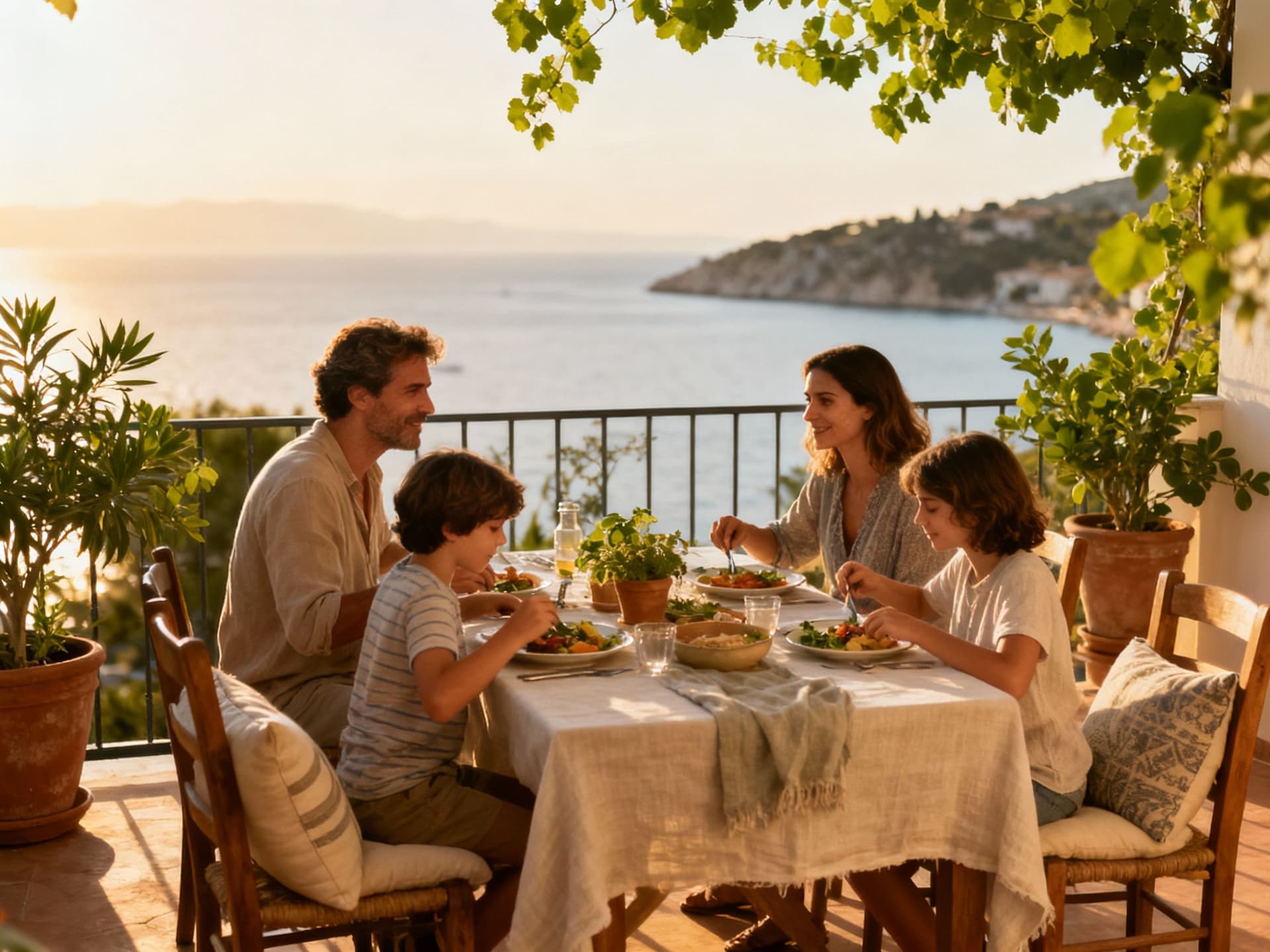
Lifestyle choices need to be matched to practical steps: financing availability, taxes, notary costs and resale liquidity. France’s market shows early 2025 price stabilization after prior declines, and mortgage costs and local transaction taxes still materially affect net returns. International buyers should compare not only list prices but transaction friction — notary fees typically 7–8% on resale, different rules apply for new-build — and factor in ongoing property taxes and local rental regulations.
Property styles and how they shape life
Seaside apartments with balconies support a compact, walkable life; Provençal houses with gardens enable entertaining and vegetable plots. Older stone houses require specific maintenance and can charge a premium for authenticity; modern developments offer energy performance and simplified ownership but higher unit prices near transport hubs. Match property type to daily routines: if cafés, galleries and short walks matter, prioritise central apartments; if private outdoor living matters, seek townhouses or villas within 15–30 minutes of regional centres.
Working with local experts who know lifestyle and law
Agencies and notaires provide different but complementary roles: estate agents curate stock and lifestyle fit; notaires handle legal transfer and tax formalities; local tax advisers explain wealth, income and rental tax implications. For buyers from outside the EU, residency rules and financing pre-approval are immediate priorities. A coordinated team — local agent, bilingual lawyer or notaire and tax adviser — reduces surprises and preserves the lifestyle you imagined when touring properties.
- Steps to align lifestyle with purchase (practical + experiential)
- Visually map daily routes: market, healthcare, schooling, transport (walk these routes during different times of day).
- Obtain pre‑approval and compare French vs Spanish mortgage offers to understand net monthly costs.
- Ask for historical occupancy data if you plan short‑term rentals and check local municipal rules.
- Request energy performance (DPE) and structural reports for older homes; budget for renovation and seasonal maintenance.
Insider Knowledge: What Expats Wish They'd Known
Expat experience often separates expectation from reality: language matters for daily admin, seasonality affects neighbourhood energy, and municipal rules shape what you can do with a property. Many newcomers underestimate the cumulative cost of ownership — insurance, taxe foncière, utilities and occasional renovation. Those who settle best combine curiosity and patience: learn local rhythms, frequent the same markets, and build relations with neighbours and tradespeople.
Integration, language and community
Small daily rituals — ordering coffee, registering with the mairie, attending local fêtes — accelerate integration. French bureaucracy rewards small investments in language and process: opening accounts, registering for healthcare and understanding tax letters makes life smoother. Expat groups and local English-language community events exist across Provence and the Riviera; they are useful but pursuing local friendships ensures deeper access to trusted local services.
Long-term lifestyle and value considerations
France offers long-term capital preservation in many coastal and provincial markets, yet returns vary. Prime Riviera addresses trade liquidity for established buyers but carry high entry prices; secondary coastal towns and inland Provençal villages can offer better yields and lower entry costs. Consider how your life stage (retirement, remote work, family) interacts with liquidity needs: if resale speed matters, favour towns with steady year-round demand and excellent transport links.
- Practical buyers’ checklist (quick wins)
- Confirm total acquisition costs: notary fees (resale), agency commission, registration taxes.
- Compare French and Spanish tax treatments if you split time between countries (income tax, property tax, wealth tax exposure).
- Plan for seasonal service needs (pool, garden, winterisation) and associated costs.
- Seek agencies that specialise in cross-border clients and new‑development pipelines for clarity on warranty and resale prospects.
France’s coastal life is compelling — the markets are diverse, established and regulated, which helps long‑term stability. If liquidity and lower initial outlay are priorities, Costa Blanca can be more transactional and price‑competitive; if cultural depth, healthcare access and transport to European hubs matter, France often wins. The right choice comes from aligning daily life preferences with financial and legal realities.
If France aligns with the life you want, start by shortlisting towns aligned with your daily rituals, obtain local mortgage pre‑approval, and commission energy and structural reports before bidding. Use a bilingual notaire or lawyer for contract reviews and ask agents for historical sales data and seasonal occupancy figures. Small practical steps protect both your lifestyle plan and financial outcome; local experts help you convert seaside aspiration into a robust purchase.
Danish relocation specialist who has lived in Barcelona since 2016. Helps families move abroad with onboarding, schooling, and local services.
